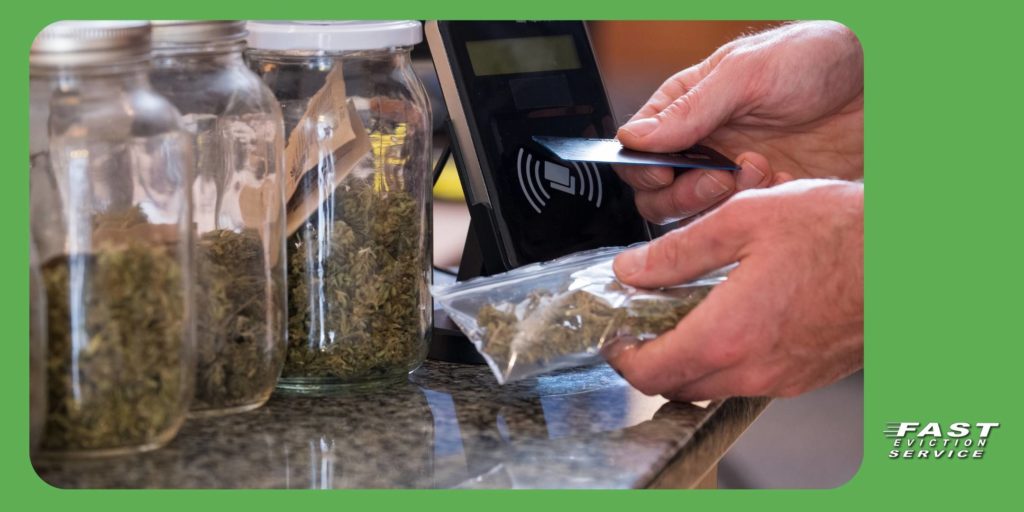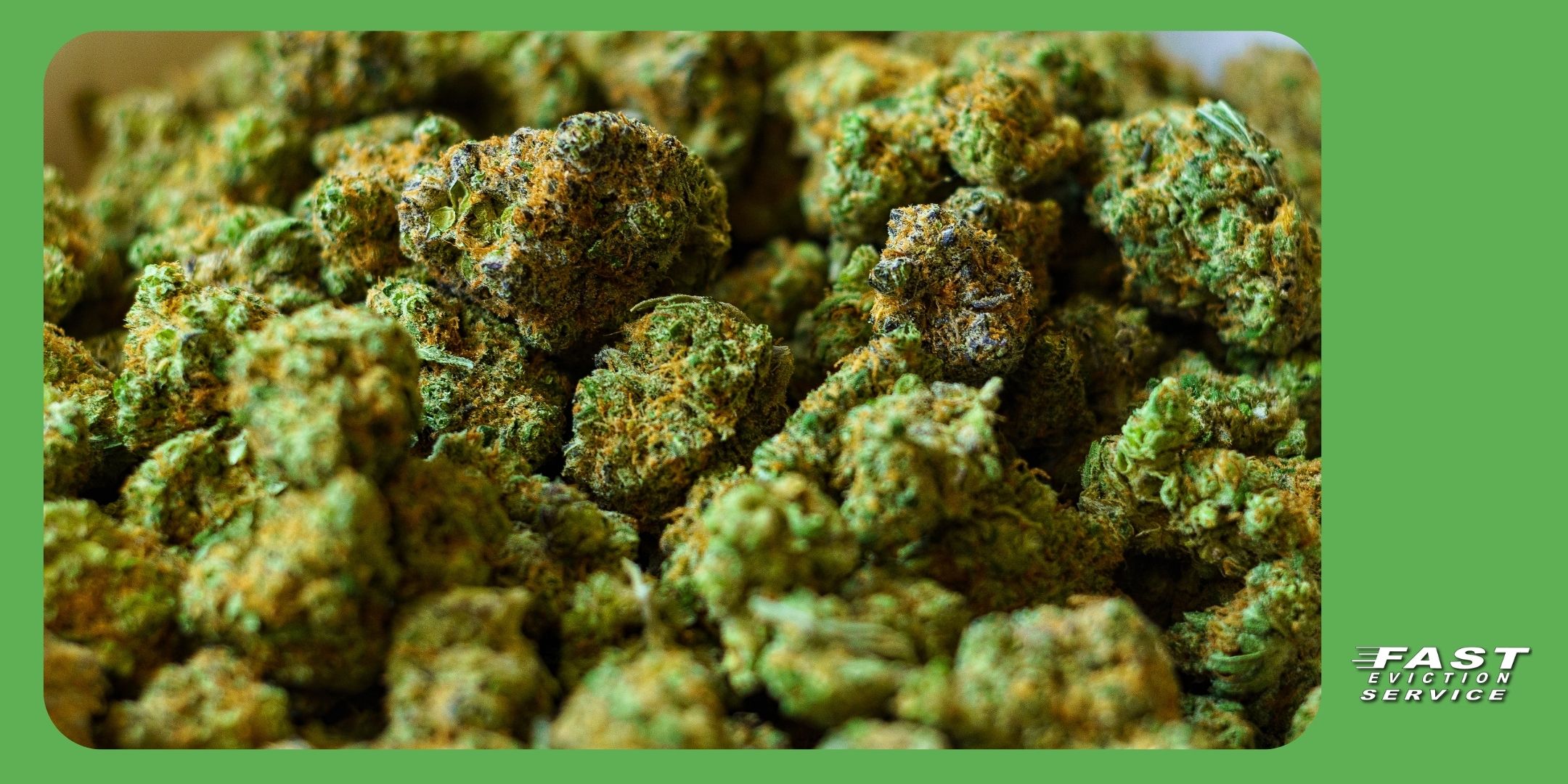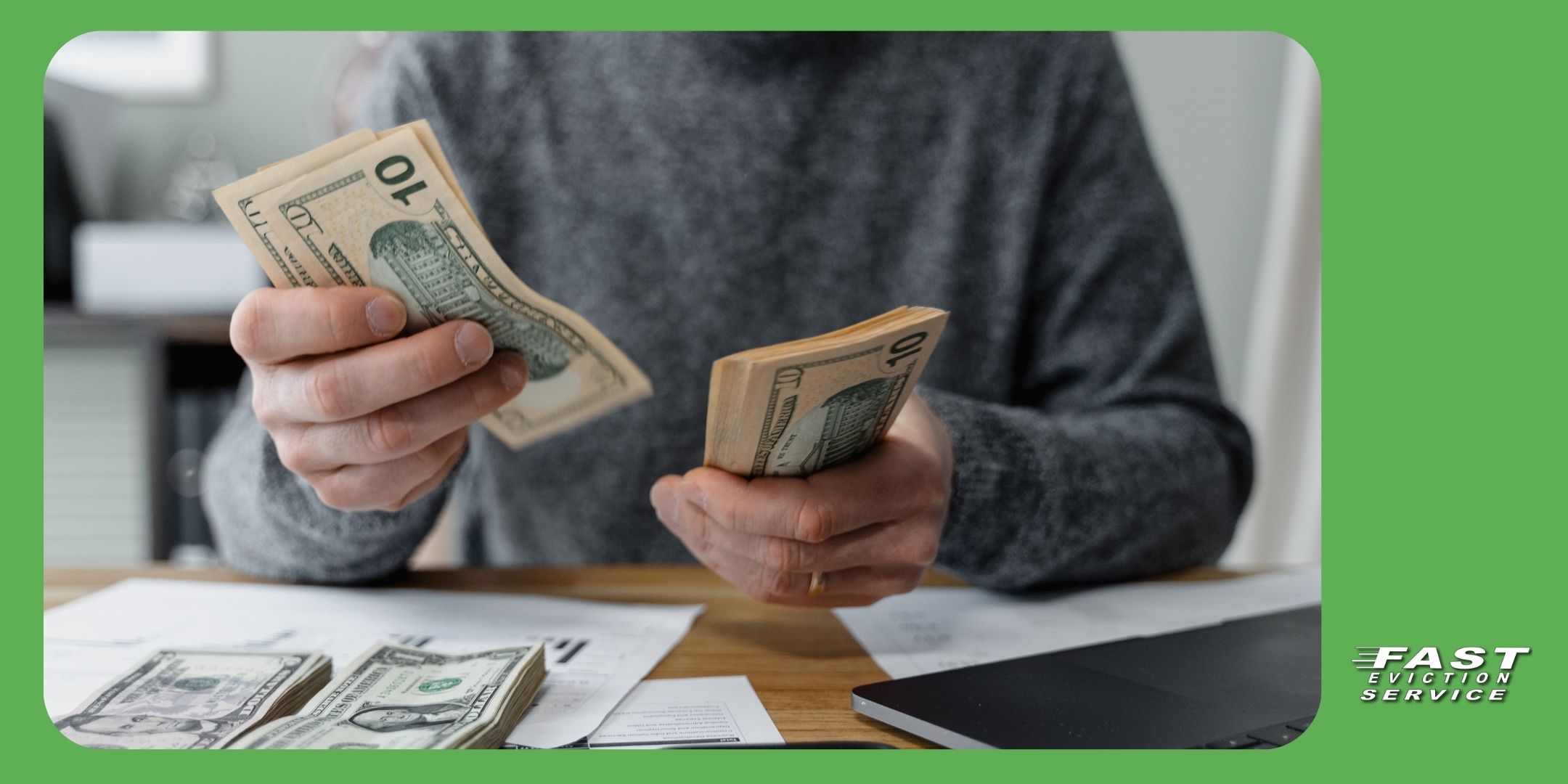Updated 04/10/25
As the cannabis industry continues to grow across the United States, commercial landlords are facing a new wave of opportunity and complexity. Leasing to cannabis business tenants offers the chance for high rental income and long-term leases, but it also presents serious legal and financial risks. Whether you’re a new landlord curious about cannabis leases or a seasoned investor looking to expand your portfolio, it is essential to understand what you’re getting into.

The unique legal landscape surrounding marijuana, especially the conflicts between state and federal law, makes cannabis leasing unlike any other commercial arrangement. From compliance pitfalls to banking challenges, you need to approach cannabis tenant lease agreements with more diligence and foresight than ever before. In this guide, we break down the major issues landlords should consider and offer practical advice to help protect your investment.
Table of Contents
- Is It Legal to Lease to Cannabis Tenants in Your State?
- Top Risks Landlords Face When Leasing to Cannabis Businesses
- Essential Lease Terms for Cannabis Tenants
- Federal vs. State Law: What Landlords Must Know in 2025
- Cannabis Tenant Security & Insurance Requirements
- Tax Implications of Leasing to a Cannabis Business
- How the SAFER Banking Act Could Change Cannabis Leasing
- Will Marijuana Be Rescheduled? What That Means for Property Owners
- Tips to Protect Your Investment When Leasing to Cannabis Operators
- Checklist: What to Include in Your Cannabis Lease Agreement
- Frequently Asked Questions About Leasing to Cannabis Business Tenants
Is It Legal to Lease to Cannabis Tenants in Your State?
The first question every landlord must ask is whether cannabis businesses are legal in your state and municipality. As of 2025, more than 35 states have legalized marijuana for medical or recreational use, but zoning restrictions and licensing requirements vary dramatically from one jurisdiction to the next.
Local ordinances may prohibit cannabis dispensaries or cultivation facilities even if the state allows them. Before signing a lease, verify whether the business has obtained the necessary licenses and whether the property is properly zoned. Leasing to cannabis businesses without due diligence can leave landlords vulnerable to eviction orders, civil fines, or property forfeiture.
Understanding your local and state laws is a crucial first step when leasing to cannabis business tenants. Even experienced landlords must stay up to date, as regulations change rapidly and compliance is often strict.
Top Risks Landlords Face When Leasing to Cannabis Businesses
Leasing to cannabis operators isn’t just about signing a lease and collecting rent. One of the most significant risks of leasing to cannabis operators is federal intervention. Since marijuana remains a Schedule I drug under federal law, any commercial real estate tied to cannabis activity could be subject to federal asset seizure.
There are also reputational risks to consider. Some lenders and insurance companies may blacklist properties that house cannabis operations. This can make refinancing or insuring your building significantly harder. Additionally, tenant turnover becomes a more serious issue if nearby businesses object to sharing a location with a dispensary.
Compliance failures, odor complaints, and criminal activity can also become real issues. Even if your tenant operates legally under state law, one slip-up could cause headaches for you as the property owner. Real estate and marijuana laws are complex, and the penalties for getting it wrong can be severe.
Essential Lease Terms for Cannabis Tenants
Crafting a robust lease agreement is essential when working with cannabis tenants. First, make sure the lease clearly states the permitted use of the property. This avoids ambiguity and makes it easier to enforce compliance.
Second, include detailed cannabis lease clauses that require the tenant to comply with all local and state laws, maintain proper licensing, and notify you of any inspections or enforcement actions. You may also want to include provisions requiring enhanced security, odor control, and insurance coverage.
Another smart addition is an indemnification clause that protects you from liability if the tenant breaks the law. With the right cannabis tenant lease agreements in place, you can protect your interests while providing tenants with a clear framework for operation.
Federal vs. State Law: What Landlords Must Know in 2025
Even though states have the power to legalize cannabis, federal law still treats it as illegal. This duality creates significant challenges for landlords. If you’re leasing to cannabis businesses, you must understand how this conflict affects everything from financing to legal exposure.
Federal law enforcement has mostly taken a hands-off approach in recent years, but that could change depending on political shifts. Properties leased to marijuana businesses may not qualify for federal tax deductions, and any federally backed loans could be jeopardized. The risks of leasing to cannabis operators must be carefully weighed against potential gains.
Because of these concerns, some landlords form LLCs or separate holding companies to isolate risk. Others include lease termination clauses that activate if federal laws are enforced. Being proactive can help reduce exposure to regulatory swings.
Cannabis Tenant Security & Insurance Requirements
Security is a cornerstone of compliance for cannabis operations. Landlords should require tenants to implement extensive surveillance, lighting, and access control systems. Your lease should spell out these requirements in detail, including monitoring and storage protocols for security footage.
Equally important are cannabis business insurance requirements. Standard commercial policies may not apply to cannabis operations, so ensure your tenant obtains cannabis-specific liability, property, and business interruption coverage. Require proof of insurance before lease commencement and insist on being named as an additional insured.
Landlord cannabis compliance depends heavily on tenant cooperation, especially in high-risk industries. Your lease should give you inspection rights and the authority to demand corrections to any deficiencies.
Tax Implications of Leasing to a Cannabis Business
Many landlords are surprised to learn that leasing to cannabis business tenants can have significant tax consequences. Under IRS Code Section 280E, cannabis businesses cannot deduct ordinary business expenses, which means they often push for lower rent or creative lease structures to offset the financial burden.
If your tenant pays above-market rent or provides profit-sharing arrangements, you could be subject to scrutiny by tax authorities. Moreover, if you operate the cannabis business yourself or take equity, you may fall under Section 280E restrictions as well.
Work closely with a tax advisor who understands cannabis and real estate law. Structuring the lease appropriately can save you headaches down the road and ensure your income remains compliant.
How the SAFER Banking Act Could Change Cannabis Leasing
The SAFER Banking Act represents a potential turning point in cannabis real estate. If passed, it would allow banks and credit unions to work with state-legal cannabis businesses without fear of federal penalties.
For landlords, this means cannabis tenants would finally have access to traditional banking services. Rent payments could be made via bank transfers instead of cash, reducing the risks associated with handling large sums of money.
Moreover, lending for cannabis-related properties could become more accessible, increasing property values and making cannabis leasing more mainstream. The SAFER Banking Act and cannabis industry reform may open new opportunities for property owners across the country.
Will Marijuana Be Rescheduled? What That Means for Property Owners
In 2025, the DEA continues to debate rescheduling marijuana from Schedule I to a lower category. If marijuana is rescheduled, the industry could see massive changes.
Rescheduling would ease many burdens for both businesses and landlords. Section 280E might no longer apply, banking access could improve, and more insurance options could become available. This would make leasing to cannabis business tenants far less risky.
However, rescheduling wouldn’t eliminate all regulation. You’d still need to screen tenants carefully and comply with state and local rules. But the potential for market growth and regulatory stability could make cannabis leasing an even more attractive opportunity.
Tips to Protect Your Investment When Leasing to Cannabis Operators
Always do your homework before entering a lease. Start with a thorough background check on the tenant and verify all licenses. Look at their compliance history and financials. A strong tenant should be transparent and willing to share documentation.
Next, make sure you consult a cannabis-specific attorney when drafting your lease. Regular commercial leases won’t address the unique legal challenges involved. Customize your cannabis lease clauses to fit your jurisdiction and tenant’s business type.
Ongoing monitoring is also key. Don’t take a set-it-and-forget-it approach. Regularly inspect the property, verify compliance, and keep communication open. Leasing to cannabis businesses can be profitable, but only when you manage the relationship wisely.
Checklist: What to Include in Your Cannabis Lease Agreement
- Clearly defined use clauses specific to cannabis
- State and local compliance obligations
- Odor mitigation and waste disposal requirements
- Required licenses and inspection protocols
- Detailed insurance requirements with proof
- Rent escalation clauses tied to market benchmarks
- Indemnification provisions protecting the landlord
- Right to inspect and audit business operations
- Lease termination rights for federal enforcement
- Security and surveillance expectations
Frequently Asked Questions About Leasing to Cannabis Business Tenants
Is it legal to lease to cannabis tenants if marijuana is federally illegal?
Yes, if your state allows it. But you still face risks due to the conflict with federal law.
Can I be prosecuted for leasing to a marijuana dispensary?
Federal prosecution is unlikely for compliant state businesses, but it remains a theoretical risk.
Do I need special insurance to lease to a cannabis business?
Yes. Require tenants to carry cannabis-specific insurance, and check with your insurer for landlord cannabis compliance coverage.
Will I lose my loan or bank account if I lease to a cannabis tenant?
Possibly, especially if your lender or bank is federally regulated. The SAFER Banking Act may help resolve this.
Should I use a regular commercial lease form?
No. Always use a cannabis-specific lease with clauses tailored to legal, operational, and compliance risks.


